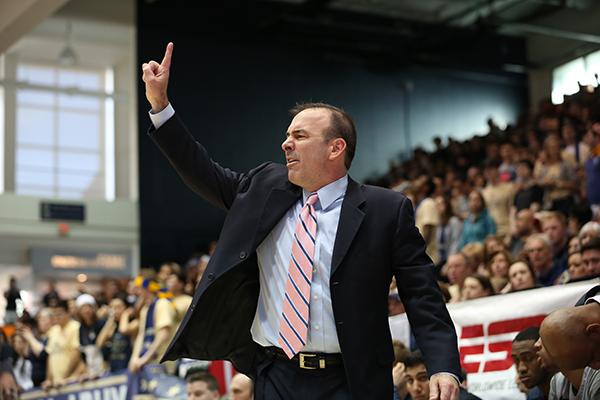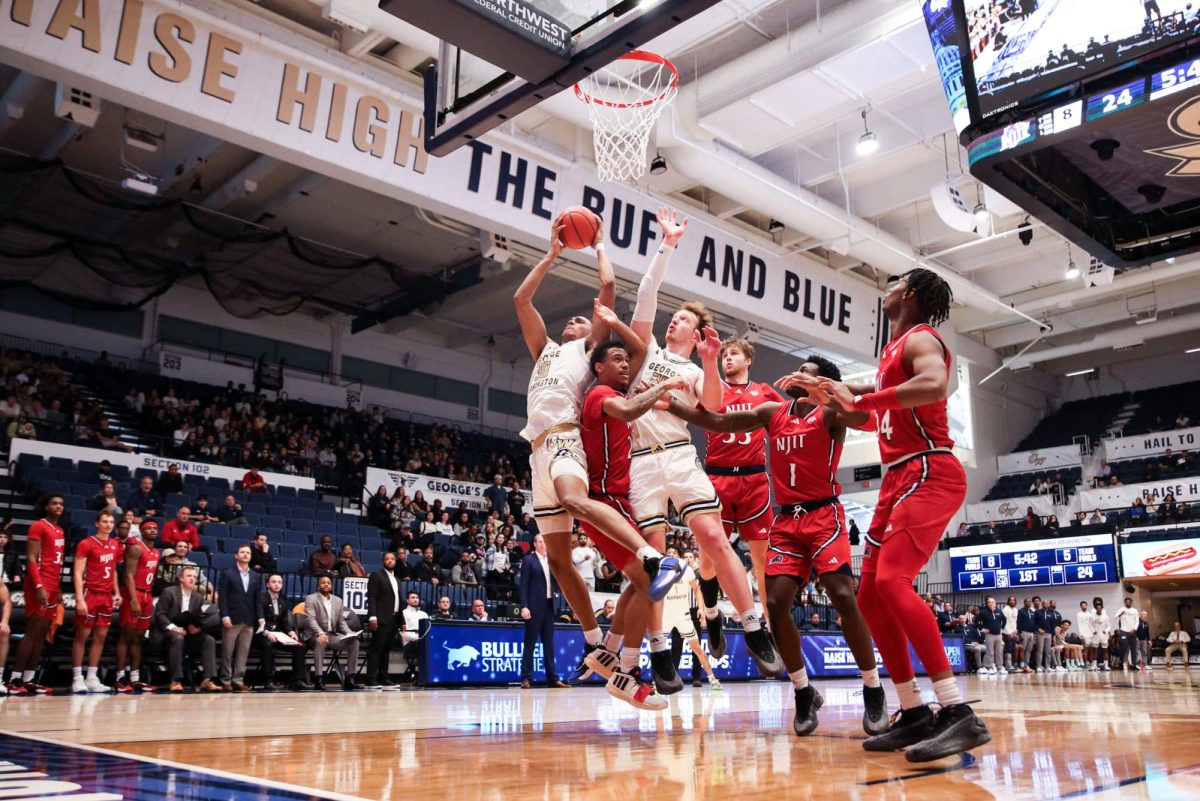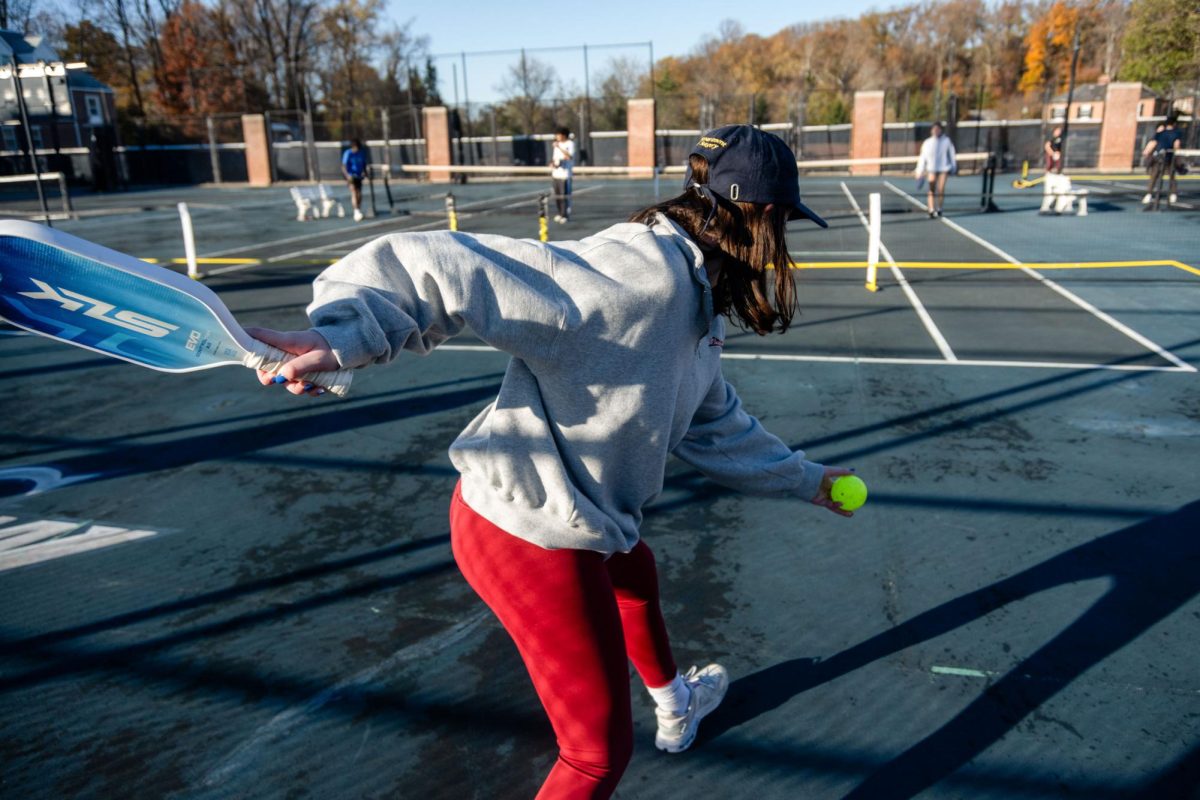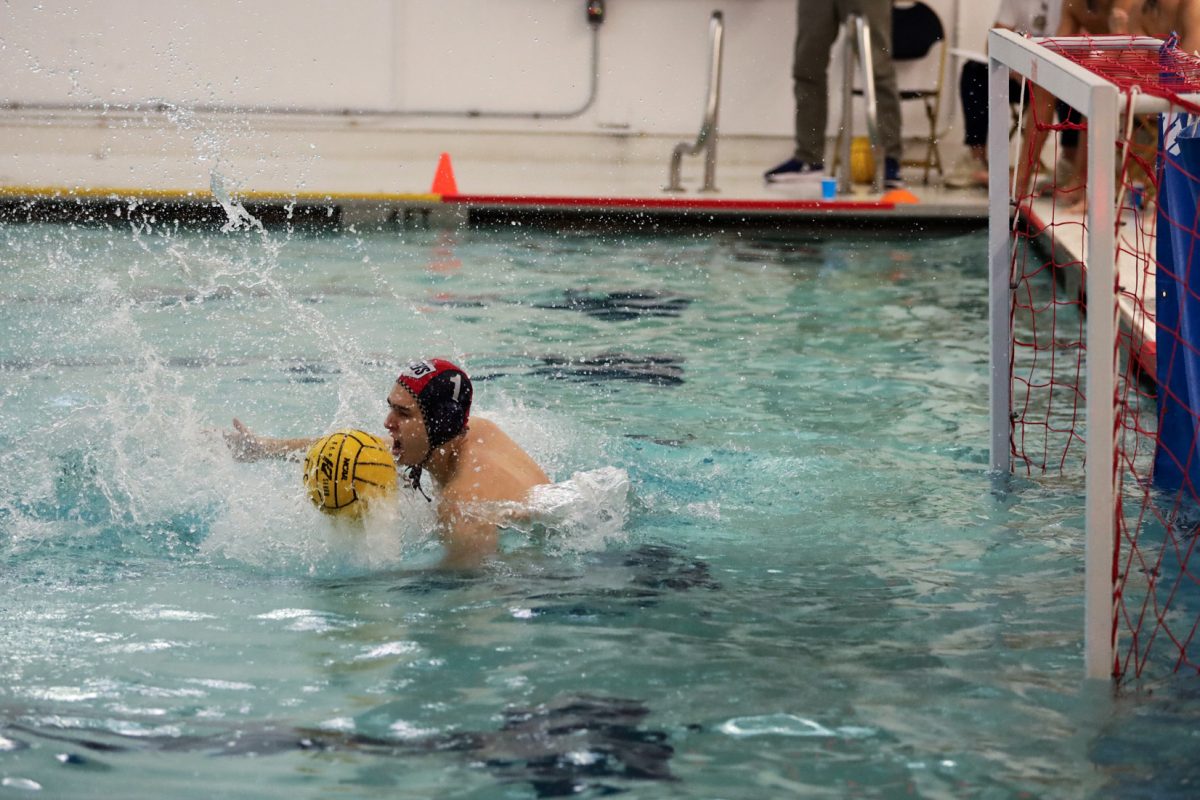The men’s basketball program was upended in late July by verbal and emotional abuse allegations in the Washington Post against head coach Mike Lonergan.
GW promptly announced a formal Title IX review of the accusations and said the University would bring in outside counsel to assist the investigation.
“The University expects full cooperation and will not tolerate retaliation during the course of the investigation,” Executive Director of Athletics Communications Brian Sereno told the Hatchet in July. “We will also continue to inform the student athletes on our men’s basketball team of the University’s support and of the resources available to them.”
The Hatchet sent the Athletics Department a combined 21 follow-up questions for Lonergan, Nero and Muhammad about the allegations in late July, which Sereno said would not be answered.
More than a month later, and with the 2016-2017 season set to tip off on Nov. 11, no new information about the investigation or the program’s operation has been released.
Here’s what you may have missed over the summer about the story:
Damning allegations
The article, by the Post’s Adam Kilgore, cited former and current players, as well as former team staff members who spoke on the condition of anonymity, about the uncomfortable environment Lonergan created during recent seasons.
In addition to denigrating comments toward players — like telling one player he should transfer to a “transgender league” — the report alleged that the fifth-year head coach openly shared a distaste for Athletic Director Patrick Nero by making graphic, sexually-charged remarks about his superior.
A player met with Nero April 6 — less than a week after the team captured its first postseason title in school history at the 2016 National Invitation Tournament — to address concerns, the Post reported.
Nero then informed the player he had reported their conversation to Title IX Coordinator Rory Muhammad per University policy. After meeting with Muhammad, the player sent him a follow-up email April 16 with concerns that the complaints weren’t taken seriously.
The Post reported that the player was told officials had looked into the coach’s behavior previously and that the issue had been “handled.”
The player who followed up with Muhammad then left GW, ESPN reported. That player’s departure was one of 13 total transfers during Lonergan’s five-year tenure, with three players leaving in each of the past four seasons.
Following the 2014-2015 season, University administrators met with Lonergan to address his language, athletic officials requested practice tapes to review his behavior and during the 2015-2016 season, Senior Associate Athletics Director Ed Scott traveled with the team and attended practices, according to the report.
Lonergan’s attorney Scott Tompsett dispute that the University ever took action against the coach.
“The Washington Post article is full of lies and half-truths. For example, GWU administrators did not ‘address concerns’ with coach Lonergan last year,” Tompsett said in statement to ESPN in July. “Rather, they looked into allegations and after a thorough investigation, concluded that Coach Lonergan had not violated University policy and that no further action would be taken.”
While discussing the allegations on 106.7 The Fan July 22, sportswriter and author John Feinstein, a friend of Lonergan’s, suggested there had been a formal investigation two years ago, after which Lonergan’s name had been cleared.
“The people who were quoted were implying that the school had whitewashed the previous complaints and had thrown them under the rug,” Feinstein said on air. “When in fact as I said, not only was there a formal investigation where Mike was cleared, but there was at least one come-to-Jesus meeting between Knapp, Nero and Lonergan in which what I gathered some of the air got cleared although clearly not completely.”
Former players defend Lonergan
In light of the egregious accusations, a handful of former players quickly took to social media to defend Lonergan.
Recent graduate and Argentine Olympian Patricio Garino, part of one of Lonergan’s best recruiting classes and GW’s NIT championship squad, said he was “shocked,” upon reading the accusations.
“Coach [Lonergan] is very old school and he’s going to push you to the limits to reach your potential,” Garino said in a statement posted to his Twitter account July 21.
Isaiah Armwood and Maurice Creek, who helped the Colonials reach the 2014 NCAA Tournament as a senior and graduate student, respectively, also took to Twitter to denounce the report.
“I was under Lonergan for three years. We bumped heads often, but this story is ridiculous,” Armwood tweeted.
One former player, who spoke to the Hatchet on the condition of anonymity, said he believes the high transfer rate during Lonergan’s tenure is not a result of his behavior but more likely is due to players’ desire for more playing time on other teams.
Of the nine transfers who left GW in the past three seasons, only two averaged more than 7.9 minutes per game.
The Hatchet contacted multiple GW transfers and a former team staffer for this story, all of whom declined to, or did not return requests for, comment.
Ongoing investigation
The University is in the midst of investigating the allegations, some of which go “beyond the scope of Title IX,” according to a release in July about the investigation.
Frank LoMonte, the executive director at the Student Press Law Center, explained that it’s routine for colleges and universities to seek outside counsel in these types of investigations, both to err on the side of caution legally and to symbolically show that they are taking accusations seriously.
“Once you’re faced with a Title IX complaint, your obligation as an institution is to show that you took all reasonable steps to respond once you became aware of discrimination or harassment taking place,” LoMonte said in an email. “You’re not expected to be perfect or to prevent any act of harassment, but once you gather the facts confirming that illegal behavior took place, then you’re supposed to act promptly to end the discriminatory behavior.”
Sereno declined to comment on any details surrounding the investigation, including which firm is assisting GW, and said officials do not know when the investigation will conclude.
In mid-August, the men’s basketball team embarked on a two-week tour of junior forward Yuta Watanabe’s native Japan.
The Colonials, whose 2016-2017 roster features seven newcomers, won all four of their exhibition games: three against the Japanese National team and one against the Ryukyu Golden Kings.
Lonergan traveled with the team to Japan and appeared in numerous posts on the team’s social media accounts.
Sereno confirmed that Nero was not present on the trip, but explained that the athletic director had planned on not attending even before The Post story was published.
The decision whether to immediately suspend an employee from further contact with students is fact-specific, LoMonte said. He also said it is possible that measures short of immediate suspension, like closely monitoring the employee’s behavior, might be satisfactory.
“Once there is credible reason to believe that a person has a practice of unlawful harassment — and depending on the number and severity of the accusations, GW may or may not have reached that point yet — then you’re at greater risk of liability if the person re-offends and commits the same type of behavior,” LoMonte said. “That’s certainly something the Department of Education would look at if a Title IX case got escalated beyond the campus level to the federal level.”







